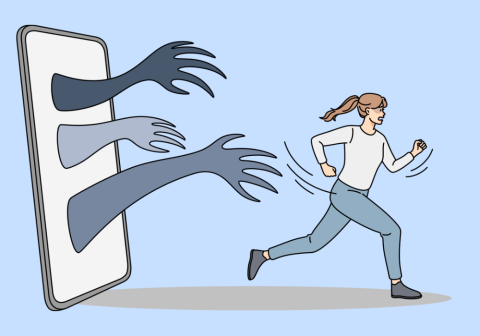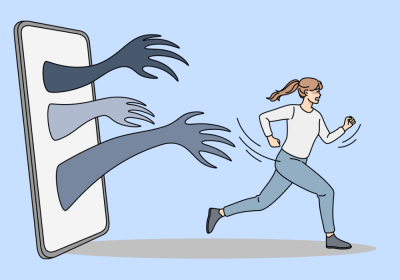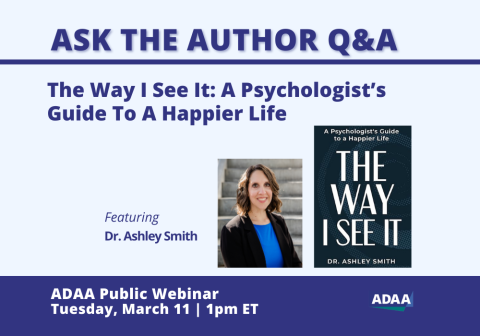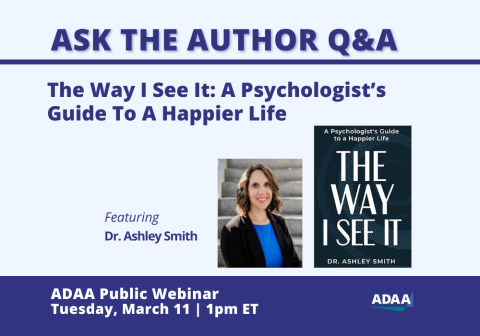Diagnosing Depression in People with Autism: A Guest Blog Post from SPARK - Part 1
Diagnosing Depression in People with Autism: A Guest Blog Post from SPARK - Part 1
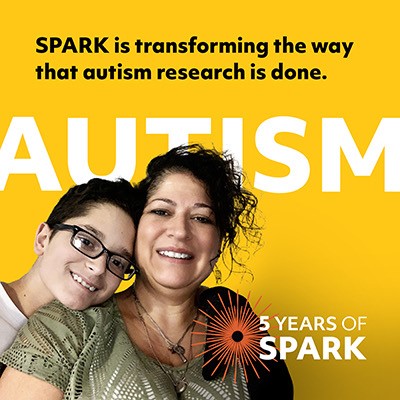
Written by Marina Sarris - a community writer for SPARK.
SPARK is the largest autism study ever in the US - over 100k families - with a goal of speeding up research and advancing our understanding of autism to help improve the lives of all affected. Celebrating its 5th Anniversary, SPARK is committed to finding the causes and treatments of ASD. https://sparkforautism.org/5years/
This article discusses topics that may be upsetting to some people. The National Suicide Prevention Lifeline provides free, confidential support 24/7 at 1-800-273-8255 and by online chat.
As a young child with autism, Ben had trouble putting his feelings into words, except when he was angry. During one outburst, he told his mother he didn’t want to live. Although she took him to mental health providers, they focused on treating him for anxiety, rather than depression.
Ben is now 20. The pandemic turned his world upside down to the point where he attempted suicide. It was only at this point that Ben finally received a formal diagnosis of and treatment for major depression.
He is not alone. People who have autism are four times more likely to experience depression during their lifetime than the general population, according to a 2019 analysis of many studies. In fact, about 40 percent of autistic adults, and 8 percent of youth, have had depression.1
Adults on the autism spectrum were five times more likely to attempt suicide than the general population, according to research from Kaiser Permanente Northern California. And, where the numbers are truly telling, almost half of those people who tried to take their lives had not been diagnosed with depression before their attempt.2
Depression is one of the more serious conditions often found in people who have autism. Unfortunately, it is also often misunderstood or even missed by families, caregivers, or doctors.
Is it Depression or Autism?
The symptoms of depression may be harder to recognize in people on the spectrum. Sometimes that’s because “high-profile problems,” such as aggression and self-injury, draw doctors’ attention away from depression and anxiety, according to some researchers.3
Other times, the signs of depression may be mistaken for autism itself. Although depression and autism are very different, some symptoms may be found in both conditions, explains Rowan University autism and depression research psychologist Katherine Gotham, Ph.D.
These overlapping traits include lack of interest in socializing, sleep problems, trouble concentrating, and having an emotionless facial expression and monotone voice.4-6
And sometimes, symptoms of depression may differ from textbook examples. Rather than looking tired and sad, a depressed person who has autism may be irritable or agitated, or have emotional outbursts, according to research.3,5,7
Unfortunately, there are no lab tests or scans for depression. Doctors typically rely on a patient’s ability to describe his feelings. That’s a heavy burden for people whose autism impairs their ability to communicate through words, facial expressions, and body language.
Children and teens may not be able to label their feelings as guilt or worthlessness, some of the words doctors are looking for when considering depression.7 Even adults who speak fluently may struggle to identify their moods or emotions, a condition called alexithymia.8
The Lens of Depression
If we look at Ben through the lens of depression, a nuanced story will emerge. When he said that he did not want to live – a warning sign – a psychologist did not think he was seriously depressed. The reason? Ben also reported that he needed to meet some fellow students to finish a project. Because of this additional information, “they said he does not fit the profile of someone who’s depressed.”
But what if his desire to follow rules, a common trait of autism, or his perfectionism could also explain his concern about the project? Unfortunately, because Ben earned good grades, health care providers seemed to overlook his depressed feelings.
The good news is that researchers are exploring ways to improve doctors’ ability to diagnose depression in those with autism.
When Should You Suspect Depression in Someone with Autism?
Doctors and researchers agree that it is important to look for changes in someone’s sleep and eating habits, in their interests, and their irritability or agitation levels. This is crucial, particularly if the person cannot describe their feelings. Doctors may rely on information from relatives or others about such changes when evaluating someone with autism.
“I think initially we were hypothesizing that depression might really look different in people with autism,” Gotham says. “What we have found so far is that depression looks different in some people with autism. But it looks a lot like the depression that we know, in a lot of people on the spectrum.
Depression Risks from Childhood through Adulthood
Who is more likely to experience depression? According to research, risks include:
- A family history of depression or bipolar disorder, which may have existed before a parent had a child with a disability 5,10
- Experiencing trauma, including bullying 11,12
- Being verbal and having at least average intelligence 10,13-16
- In children and teens, having anxiety or another psychiatric condition10
- Being older.
One’s risk for depression rises as they move from childhood to adulthood, whether they have autism or not, Gotham says. “At each stage of life – childhood, adolescence, and adulthood – people on the autism spectrum appear to be at a greater risk for depression compared to the general population,” she says.
One stage, the transition to adulthood, poses a particular challenge for people who have autism, with stresses that may increase the risk of depression, says Dr. Robert Wisner-Carlson, Robert Wisner-Carlson, chief of the Autism and Neurodevelopmental Outpatient Program at Sheppard Pratt, a mental and behavioral health system in Maryland.
Students with autism often receive an array of services through their public schools. But when they graduate, usually between ages 18 and 21, they lose school services, such as speech therapy, social skills instruction, and psychological help. They may not qualify for help under the adult disability system. Even if they do qualify, they may have to wait a long time to receive services. The sudden loss of services “can be a huge jolt,” says Wisner-Carlson, like “falling off a cliff.”
Other factors can influence risk. Families of people who have autism seem more likely to have a history of depression and bipolar disorder, Wisner-Carlson says. “The genetic studies of psychiatric illness and autism show a lot of genetic markers that overlap.”
And other factors play a part, too. Research shows that children who have autism are bullied at a higher rate than other children.17 Bullying is linked to depression in typically-developing teenagers, and one study found psychiatric effects from bullying into adulthood.18,19
Some aspects of autism itself may add to depression. For example, rumination – repeatedly thinking about things that upset you – is a risk factor for depression in the general population. People with autism have repetitive motions and obsessive interests, which may be related to rumination.20,21 Another study found a link between depression and the planning and organizational problems often experienced by people who have autism.22
The risk for depression is not spread evenly across the spectrum however. People who are verbal and don’t have an intellectual disability are more likely to be diagnosed with depression.
Some wonder if depression appears to be more common in verbal people because it’s easier to diagnose and research them. “How do you identify trauma or depression in someone who’s nonspeaking or has very low communication skills?” asks social worker Dena Gassner, an autistic member of the SPARK Community Advisory Council. But, she warns, “The illusion is thinking those are the only people we’re struggling to identify.” Even verbal people may escape diagnosis, she says.
Many advocates and doctors say it is important to look beyond a person's autism and consider depression as a possible diagnosis.
Resources
- The National Suicide Prevention Lifeline provides free, confidential support 24/7 at 1-800-273-8255 and by online chat. It also has prevention and crisis resources, and information for professionals.
- Text HOME to 741741 in the U.S. and Canada to be connected by text message to a trained, volunteer crisis counselor at the Crisis Text Line.
- Be the One to Save a Life has resources for people in crisis.
- National Alliance on Mental Illness 1-800-950-6264.
- To locate a psychiatrist or other mental health provider, contact your doctor. You also may use this child and adolescent psychiatrist finder or adult psychiatrist finder.
- ADAA Find-a-Therapist Directory
References
- Hudson C.C. et al. J. Abnorm. Child Psychol. 47, 165-175 (2019) PubMed
- Croen L.A. et al. Autism 19, 814-823 (2015) PubMed
- Charlot L. et al. J. Ment. Health Res. Intellect. Disabil. 1, 238-253 (2008) PubMed
- Gotham K. et al. Autism 19, 491-504 (2015) PubMed
- Magnuson K.M. and J.N. Constantino J. Dev. Behav. Pediatr. 32, 332-340 (2011) PubMed
- Stewart M.E. et al. Autism 10, 103-116 (2006) PubMed
- Leyfer O.T. et al. J. Autism Dev. Disord. 36, 849-861 (2006) PubMed
- Berthoz S. and E.L. Hill Eur. Psychiatry 20, 291-298 (2005) PubMed
- Williams Z.J. et al. Assessment Epub ahead of print (2020) PubMed
- Pezzimenti F. et al. Child Adolesc. Psychiatr. Clin. N. Am. 28, 397-409 (2019) PubMed
- Chandrasekhar T. and L. Sikich Dialogues Clin. Neurosci. 17, 219-227 (2015) PubMed
- Ghaziuddin M. et al. J. Autism Dev. Disord. 32, 299-306 (2002) PubMed
- Matson J.L. and M.S. Nebel-Schwalm Res. Dev. Disabil. 28, 341-352 (2007) PubMed
- Mayes S.D. et al. Res. Autism Spectr. Disord. 5, 474-485 (2011) Abstract
- Greenlee J.L. et al. Pediatrics 137, S105-S114 (2016) PubMed
- Hollocks M.J. et al. Psychol. Med. 49, 559-572 (2019) PubMed
- Zablotsky B. et al. Autism 18, 419-427 (2014) PubMed
- Copeland W.E. et al. JAMA Psychiatry 70, 419-426 (2013) PubMed
- Wang J. et al. J. Adolesc. Health 48, 415-417 (2011) PubMed
- Gotham K. et al. Autism Res. 7, 381-391 (2014) PubMed
- Patel S. et al. Autism 21, 181-189 (2017)PubMed
- Wallace G.L. et al. J. Autism Dev. Disord. 46, 1071-1083 (2016) PubMed
